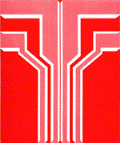Nebraska Academy of Sciences

Transactions of the Nebraska Academy of Sciences and Affiliated Societies
Date of this Version
1976
Document Type
Article
Citation
Published in Transactions of the Nebraska Academy of Sciences, Volume 3 (1976).
Abstract
The frontiers of mathematics lie in two directions: higher towards more and more sophisticated and complicated constructions based on accepted principles and methods; and lower towards deeper and deeper foundations of the superstructure of accepted mathematics. Frege was a great pioneer on the latter frontier and single-handedly opened up a deep and rich area of research from which mathematicians and philosophers still profit. In this paper I will describe Frege's contributions to the foundations of number theory and analysis and then discuss the tenability of his program.
In a nutshell, Frege's principle goal was to reduce mathematics to logic. His greatest obstacle lay in the weakness of the logical systems prevalent in his day, consisting as they did mainly of syllogistics and smatterings of propositional and modal logics. Clearly, logic as conceived in his day was inadequate for treating mathematics, as it did not even include an adequate theory of relations and quantification. So Frege built up a modern and precise logic which to this day serves as a standard of thoroughness and precision. How this logic may be described relative to mathematics is a problem I will discuss after I describe how Frege reduced natural numbers and real numbers to the concepts of his logical system.
Frege's approach to understanding the concept of number differed from that of Cantor and Weierstrass mainly because he defined numbers explicitly in terms of their roles in measurement. A natural number was defined explicitly as that which all things of the same cardinal measure have in common; a real number was defined explicitly as that which all magnitudes have in common which have the same measure relative to their respective units of measurement.


Comments
Copyright 1976 by author(s).